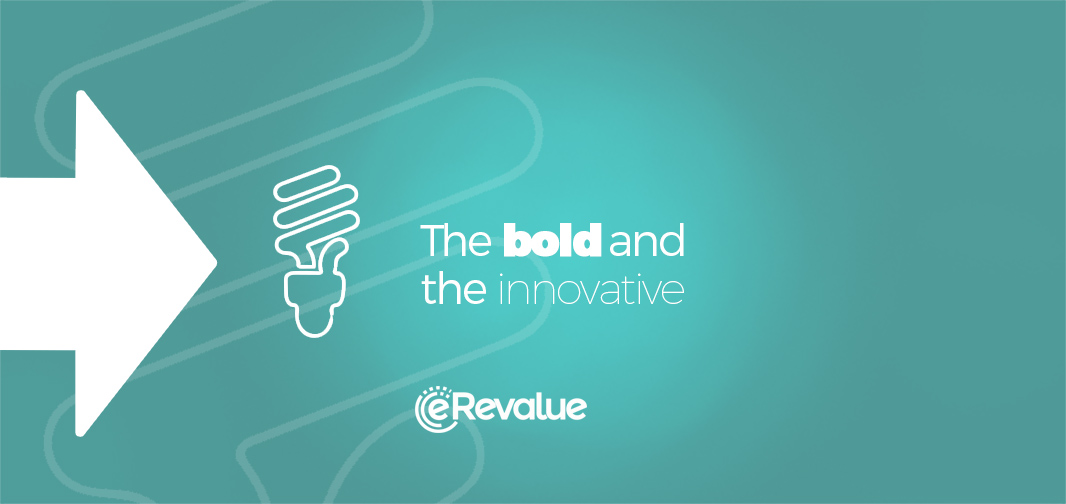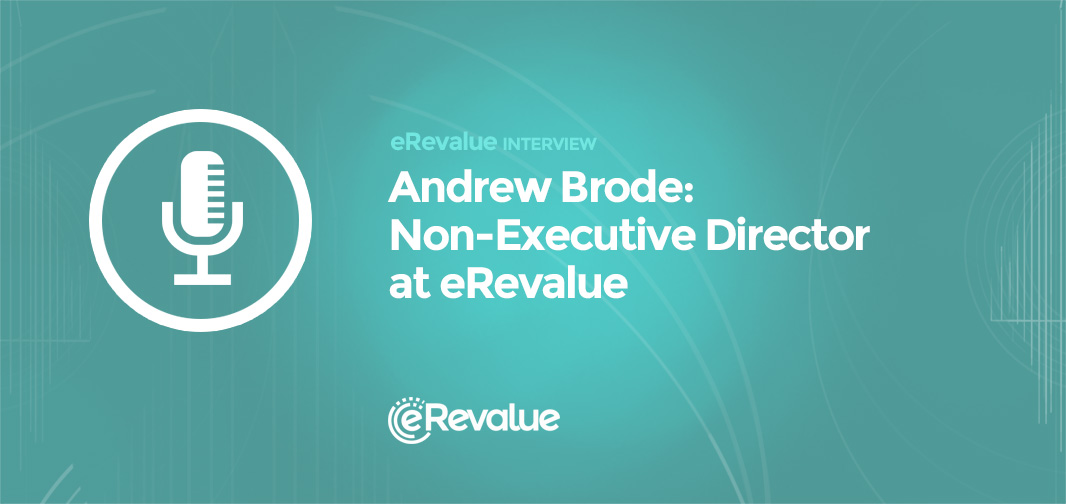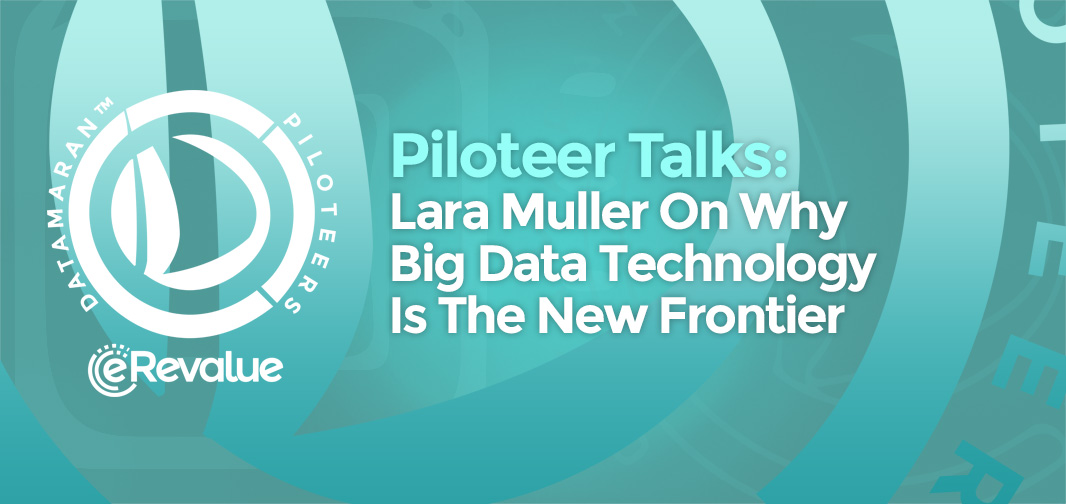eRevalue BLOG
“If an event has the word innovation in it, I’m there,” Eric Schmidt, Google Chair, declared at last year’s FT Innovate event in New York City.
In an economy shaped by constant shifts and unexpected disruptions, innovation is undoubtedly critical to business success. That’s why companies are increasingly recognized for their innovative approaches to business, as exemplified by the recent FT-ArcelorMittal’s Boldness in Business Awards.
As the event’s website proclaims, “in the business world, boldness matters more than ever.” We, at eRevalue, couldn’t agree more; we are, after all, innovators at heart working towards a more collaborative and balanced economy.
The event’s nominees embody how boldness in today’s business world is about embracing risk as an opportunity for innovation, rather than something to mitigate or hedge.
Unsurprisingly, many of these nominees have business models that serve both customer wants and society’s needs, creating what is commonly called shared value through new forms of technology.
For instance, Tesla Motors was recognized as a driver of change (one of the seven award categories), as it has revolutionized the automotive industry by coupling environmental excellence with design sexiness.
Also focusing on aligning customer interests with society’s needs, Xeros was recognized for creating a hot-water-free washing machine that reduces the average water consumption between 75 and 80 percent for a standard load.
These companies show how innovation leads to both competitive advantage and value creation over the long-term, and reinforce the rise of the entrepreneur in today’s economy.
These innovative approaches to business can be attributed to advanced technological capabilities, but they also reflect the rise of the empowered consumer.
With increased access to information through social and fast media, consumers can shape the course of business, as companies must now respond with an even greater immediacy than ever before.
The divestment movement on fossil fuels is a poignant example, which has taken root in Universities and become top of the agenda for companies and countries worldwide.
Reflective of the growing linkages between the empowered consumer, regulatory landscape, and competitive advantage in business, the divestment movement is just one example of how boldness in business does matter more than ever.
At eRevalue, we’re exploring how these linkages are playing out across the globe and across a variety of issues – from divestment to executive compensation, climate impact management, and employee engagement.
Just like the Boldness in Business award nominees, we’re taking full advantage of today’s advanced technologic capabilities to deliver the strategic insights business decision-makers need to be bold and innovative – over the short- and long-term.
Our strategic issues management system, Datamaran™, is how we’re doing this. Powered by unique technologies and techniques, Datamaran™ tunes into the constant shifts in today’s economy, capturing critical data from a variety of landscapes – competitive, regulatory, and stakeholder – to cut through the noise and deliver what matters most.
For instance, Datamaran™ shows examples of innovation across a variety of sectors – from Consumer Goods and Services to Oil and Gas.
More specifically, one company from the Consumer Goods and Services sector dedicated to manufacturing and marketing personal care, consumer tissue, and professional products has developed initiatives to provide energy-efficiency or renewable energy-based products and services to reduce energy use and requirements overall.
Similarly, in line with Tesla, a number of Automotive manufacturers are increasing the number of electric and hybrid models they design and bring to market.
We are delighted there have been previous Boldness in Business award winners amongst our Piloteers and their parent companies. BSH received the Technology award in 2013, and Mahindra & Mahindra received the Emerging Markets award in 2012.
Looking ahead, we anticipate more boldness and innovation to come, and are thrilled to be part of this new frontier in business.
Stay tuned for developments as we steer closer towards the launch of Datamaran™ Version 1.
eRevalue interview
Andrew Brode: Non-Executive Director at eRevalue
As eRevalue gears up towards the restricted release of its Datamaran™, the company welcomes a new Non-Executive Director, further positioning the governance structure for success.
Andrew Brode is the Executive Chairman and major shareholder in RWS Holdings PLC, Europe’s largest technical translations group, which he acquired in 1995 and floated on AIM in late 2003. Andrew is non-executive Chairman of Learning Technologies Group PLC, the UK market leader in elearning.
Here we find out what interests him about eRevalue, and where he sees environmental, social and governance issues on the future corporate agenda.
eRevalue interview
Meet Carlota Garcia-Manas: eRevalue’s new Director Research & Services
eRevalue is getting ready to turn big data into stories that will support strategy, with Carlota Garcia-Manas as their new Director Research & Services.
In her new role, Carlota will be leading eRevalue’s work on product development from a user perspective, ensuring that Datamaran™ delivers the smart data users need to minimize risk and maximize competitive advantage. More specifically, she will oversee the growing research and services team, which focuses on capturing the latest industry and regulatory trends, and conducting statistical analyses on these trends.
We talk to Carlota about her career, what attracted her to eRevalue, and what she plans to do in her new role.
Big data is the big talk of the town in 2015, and not just for technologists. It’s increasingly seen as form of capital in business, central to C-Suite thinking around risk and opportunity beyond the bottom line. Why? “Data is powerful,” JP Lecourt, our CFO, explains.
With over two decades of experience in international trading and risk management, JP is what we like to call a “converted Wall Street veteran.” While on Wall Street, JP worked with some of the world’s largest banks, including Bank of America, Deutsche Bank, BNP Paribas, and JP Morgan, making daily decisions based on data related exclusively to the bottom line.
As JP explains, “I am a mathematician by training, was a derivatives trader for sixteen years, and only found out about the environmental, social, and corporate governance (ESG) space in July 2012 when I met Marjella Alma, our CEO,” JP confesses, “who has had a front row seat in the ESG space for close to a decade.” “I know, so typical of a Wall Street trader.”
More than two years later, JP is now fully convinced that ESG data will be a game changer in business – and he’s not alone, as discussed in this recent Forbes article on why Wall Street increasingly values ESG integration into corporate and investor decision-making. Jerome Basdevant, our CTO and a software architect by training, agrees.
“The ESG landscape is a data rich industry that has, until now, only scratched the surface,” Jerome explains. “Leveraging big data technologies and analytic methods will help to transform the way we think about ESG, just as it has transformed the way we think about business generally.”
Jerome has spent the last two decades creating B2B solutions for Fortune 500 companies using data analytics and innovative technologies. That’s why, when Marjella first shared her initial idea for eRevalue, he realized that all of the technological buildings blocks were available to execute her vision, they just needed to be assembled in the right way.
Fortunately, Jerome knew exactly how to assemble those building blocks and construct a product that realize Marjella’s vision for data-driven corporate decision-making on today’s key regulatory and competitive risks. That’s how ESG met technology and Wall Street, over a dinner conversation one night in New York City.
Close to two years later, the once unchartered territory of ESG is now an everyday reality for JP and Jerome, two of eRevalue’s Co-Founders. For the two Frenchmen, the decision to co-found eRevalue and take on Marjella’s “ambitious yet feasible” vision was based on three key ingredients: timing, passion, and conviction.
“The timing was right,” JP explains. “Big data is a major buzzword, and ESG issues are increasingly on the top of the corporate agenda of most Fortune 500 companies. Today, over 95 percent of the world’s largest 250 companies report on ESG-related topics.”
As Marjella informed Jerome and JP during that initial conversation, the consistent and rapid growth in reporting cultivates a gold mine of valuable information that can drive improved corporate decision-making on these new risks and opportunities. It just needs to be made more accessible and digestible in order to become meaningful. As JP says, “everyone talks about integrating ESG issues into corporate decision-making, but no one really knows how to do it.”
“Analyzing this data is a pretty unique challenge,” Jerome adds, “since it’s mostly unstructured textual data – or narrative – that has, up until now, been untapped by technology.” “With new types of techniques and technologies, like Natural Language Processing and machine learning, we’re able to plunge deep into this unstructured data and reveal previously unrecognized patterns and deliver digestible data,” he explains. This data can then drive what Marjella calls pragmatic innovation into business.
In short, Jerome notes, “the ESG industry is more than ready for big data.” JP adds, “in order to be powerful, data needs to be analysed intelligently and without bias.” “Data provides a robust starting point,” he elaborates, “but subject expertise and personal judgment need to be part of the decision-making process in order to achieve what has been called ‘augmented intelligence,’ where the human and machine team-up to make better decisions.”
This personal passion in the power of data to drive better decision-making and fuel innovation in business, coupled with the “right timing” and “once in a lifetime opportunity to look at the future with a different pair of glasses,” as JP says, is, ultimately, what drove these two Frenchmen to take on the challenge of co-founding eRevalue – and impact business for the better.
“Ultimately, it’s about the journey,” Jerome says to describe both his personal experience with building a start-up and a company’s move towards ESG integration. “And you’ll never know what will or can happen until you start walking,” JP adds.
That’s exactly what eRevalue is aiming to do – to give companies the tools necessary to start walking with confidence in today’s volatile global economy.
Interested in learning more? Please get in touch to learn about our development of Datamaran™, a strategic business intelligence software that is currently being test driven by leading companies worldwide; and to find how you can get on-board before Datamaran™’s restricted release next Spring.
Search for the phrase “big data” in Google News and you will come across myriad of articles explaining and questioning the value of data-driven decision-making – from improving business strategy in risk and marketing; promoting corporate diversity; and advancing investor decision-making.
Why is big data such a big buzzword in today’s business vocabulary? “It has the potential to revolutionize managem ent,” Lara Muller, CEO of Omnimpact and Datamaran™ Piloteer, explains.
ent,” Lara Muller, CEO of Omnimpact and Datamaran™ Piloteer, explains.
With an international track record in corporate social responsibility (CSR) strategy, execution, and reporting, Lara is committed to empowering businesses to create shared value and unleash a “new wave of innovation and growth.” “That’s why,” Lara explains, “technology and big data are the new frontier in business.”
We sit down with Lara to talk about this “new frontier,” and to learn more about how she has applied big data to create shared value with companies across industries and around the world.
eRevalue: A recent McKinsey & Co. study indicates that in order for a company to benefit from the full potential of big data and analytics it requires a clear strategy on how to use data and analytics for effective decision-making throughout the organization. Who, in your opinion, should be involved in setting this strategy and implementing it throughout the organization?
Lara: I’ll start by saying that I strongly believe strategy setting, especially within the context of shared value, is not a one-off, and should always be part of an on-going process as it needs to be refined along the way.
It’s a process of continuous improvement that requires strategy setting at the top – from executives across the board, including the CEO, CFO, Chief Investment Officer, Chief Information Officer, Chief Strategist, and Chief Sustainability Officer – and implementation by line managers throughout the company. The Board of Directors is accountable for both the strategy setting and implementation.
eRevalue: How does big data analytics play a role in this process of continuous improvement?
Lara: Technology and big data are the new frontier and should be the basis of sound decision-making. Businesses often use the wrong statistics, seeking to create value based on intuition, which is an increasingly tenuous approach to decision-making in this increasingly complex world.
Useful statistics, on the other hand…







